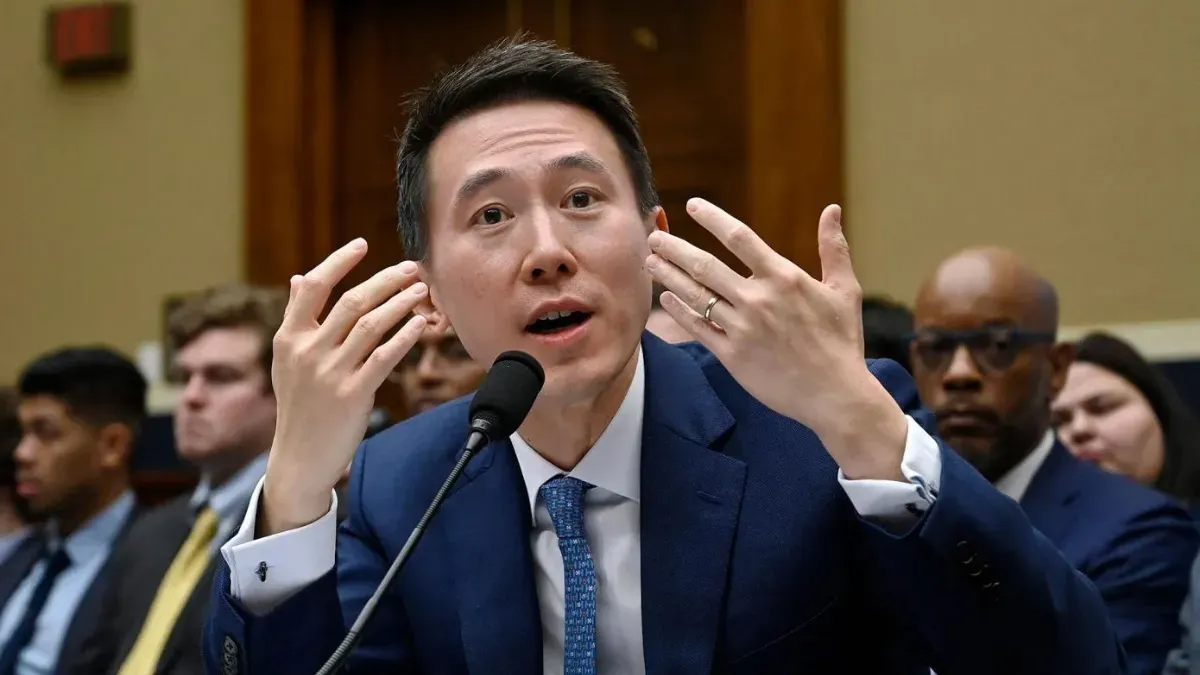TikTok CEO Shou Zi Chew's Congress showdown: Five takeaways
25 March, 2023

Bruising, damaging, relentless. TikTok CEO Shou Zi Chew faced four-and-a-half hours of questioning at a US congressional hearing on Thursday.
As one congressman pointed out, some people run marathons quicker than that.
Mr Chew will certainly be feeling it, after a torrid time giving evidence. Many tech execs have stood before Congress, and they often don't get an easy ride.
But what was exceptional about this hearing was the stubborn, never-ending line of vicious questioning.
From both Democrats and Republicans, there was no let-up. A spokesperson for TikTok said afterwards the politicians were "grandstanding". There is most certainly some truth to that. But between the sometimes frustratingly verbose questioning, we did learn a thing or two.
1. Legislators were united against TikTok
There was criticism of TikTok from Republicans and Democrats, and the level of distrust and scepticism from all sides was stark.
"Welcome to the most bipartisan committee in Congress," said Republican congressman Buddy Carter.
"Thank you, Mr Chew, for bringing Republicans and Democrats together," said Dan Crenshaw, a Republican. It was really quite something to see so many politicians - who agree on practically nothing - agreeing wholeheartedly that TikTok was a security threat. TikTok complained afterwards that not enough time had been spent focusing on the platform's measures to keep data safe.
"Also not mentioned today by members of the committee: the livelihoods of the five million businesses on TikTok or the [US Constitution] First Amendment implications of banning a platform loved by 150 million Americans," a TikTok spokesperson said.
2. ByteDance engineers in China have access to some US data
Mr Chew kept talking about a "Project Texas", a proposal which will see it store all data in the US under the watch of American firm Oracle.
However, Project Texas is not fully operational. As of now, Mr Chew confirmed that engineers at ByteDance - TikTok's parent company - do have access to data.
"We rely on global interoperability, Chinese engineers have access to data," he said.
It was an admission that politicians kept coming back to. Their point was that if data can be accessed by engineers in China, it's hard to see how the Chinese government couldn't also access it.
On Friday, China's foreign ministry repeated its claim that it does not ask companies to provide data or intelligence located in other countries.
3. Chew has shares in ByteDance
Perhaps Mr Chew's least successful defence was his attempt to distance TikTok from ByteDance.
By any definition, the Chinese company owns TikTok. Mr Chew himself used to be ByteDance's chief financial officer.
When initially asked, Mr Chew didn't want to say whether he owned shares in ByteDance. Pressed by lawmakers, he eventually said he did, but tried to downplay the connection.
China's government says it would oppose any US plan to force ByteDance to sell TikTok - something authorities are reportedly considering.
4. Chew's children do not use TikTok
At one point in the hearing, Mr Chew was asked by congresswoman Nanette Barragán, a Democrat, whether or not his own children used TikTok.
He said they didn't because they live in Singapore. In that country the version of the app for children younger than 13 is not available.
Mr Chew did clarify that the children's version of the app is available in the US, and he would let his children use it if they were in America.
5. What about Cambridge Analytica?
Mr Chew generally pulled his punches. He didn't often take the fight back to members of Congress. But there were rare moments where he did push back - and effectively.
When quizzed on TikTok's use of user data, he said: "With all due respect, American companies don't have a great track record with data … Just look at Facebook and Cambridge Analytica."
It was a barbed comment, but a reasonable point to make.
Harvesting of Facebook users' personal information by Cambridge Analytica, a British political consultancy, and other third-party apps caused uproar when it emerged in 2018.
Source: www.bbc.com
